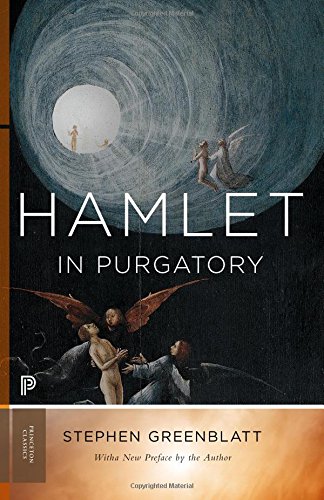
Hamlet in Purgatory
کتاب های مرتبط
- اطلاعات
- نقد و بررسی
- دیدگاه کاربران
نقد و بررسی

Starred review from February 1, 2001
Greenblatt has made a name for himself both as a preeminent Shakespeare scholar and as one of the founders of the "New Historicist" approach to literary criticism. Central to his approach is the notion that not only does history affect literature, but literature itself informs history, a claim its critics have generally either pursued without conviction or nervously sought to evade. Greenblatt's newest work is a fine example of his method's considerable appeal; what could be a narrow treatise on the theme of purgatory in Hamlet rapidly unfolds into an absorbing investigation of religious persecution, spectral haunting and the memory of the dead. Purgatory, Greenblatt contends, occupied the center of theological warfare in Shakespeare's time, derided by Protestants as a cynical source of papal revenue (from pardons and indulgences), a baroque work of the Catholic imagination and a "poet's fable." Pursuing the purgatorial mind-set through its visual and textual incarnations, Greenblatt finds its suppressed traces in the form of medieval and Elizabethan ghost stories, theatrical works and dreams His increasingly occult investigation culminates in a compelling portrait of Shakespeare's Hamlet as a political, psychological, spiritual animal haunted by the ghost of his father and bearing a secret authorial agenda. Greenblatt's fascination with ghostly texts is contagious, and he is virtually unequaled among literary critics as a prose stylist. Though the book occasionally labors under the weight of its own evidence, it greatly succeeds in bringing alive the powerful complex of fear and longing Shakespeare so deftly deployed. Required reading for those who study Shakespeare, this graceful analysis should also give considerable pleasure to those who merely enjoy him. 8 color, 10 b&w illus.

























دیدگاه کاربران